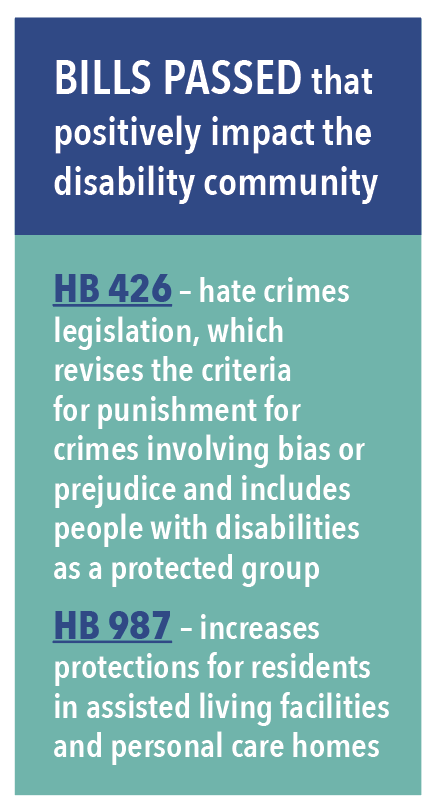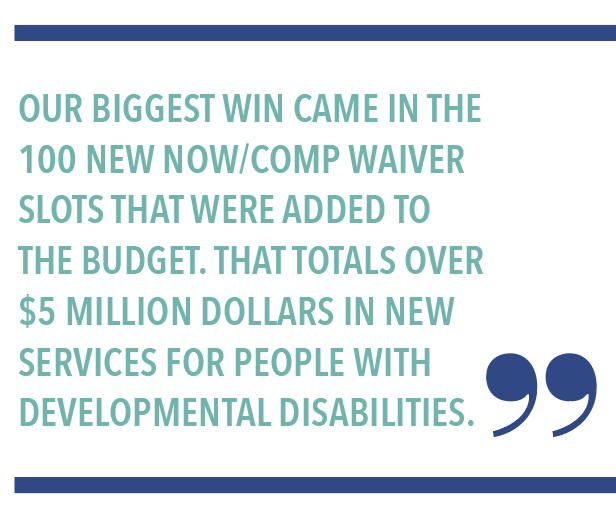Welcome to our official 2020 legislative recap. This session can only be described as a roller coaster, with plenty of highs and lows. For starters, no one could have predicted we would not have a recap for you all until July! Although our state session typically ends in April, it did not end until June 26 this year because of the pause that was required due to the COVID-19 pandemic. Please read and/or listen to our previous recap of all that took place this session before we had to suspend activity.
When session officially resumed on June 15, we knew time was limited to get high-level legislation passed. There were only 11 days left to pass the fiscal year 2021 budget, which is required prior to its July 1 start date. When the session resumed, Governor Brian Kemp was proposing all state agencies rethink their budgets and provide 14% cuts instead of the 6% cuts that were proposed in the fall of 2019. You read that right. State officials had 11 days to pass a brand-new budget with deep cuts to all areas of services!
And not only did the budget have to pass, renewed pressure to pass a hate crimes bill had resurfaced after the killing of Ahmaud Arbery and the resulting protests after the murder of George Floyd. Georgia was one of the only states in the nation without a hate crimes law, having had previously passed a hate crimes law that was struck down by the Georgia Supreme Court for being too vague. The Georgia House passed new hate crimes legislation during the 2019 legislative session, but the bill was sitting in a Senate committee with no signs of moving. The passage of this legislation quickly became top priority.
BUDGET AND REVENUE
During the 11 days of session in June, we asked a great deal of our advocates, calling on you to advocate virtually through emails, calls and virtual visits with members of our General Assembly. Now that the budget has been officially signed by Governor Kemp (HB 793), we can say that our advocacy efforts paid off. Our biggest win came in the 100 new NOW/COMP waiver slots that were added to the budget. You all might remember that this was the first year since the creation of the Georgia Department of Behavioral Health and Developmental Disabilities (DBHDD) that the governor recommended no new waiver slots be included in the budget. We spent months advocating in January and February and were happy to see that 100 new slots were included in the House version of the budget. And then COVID-19 came along, which resulted in huge revenue losses in the state. New budget proposals were introduced, and again, there were no new waiver slots proposed. We had our work cut out for us because many services were being cut, and it was a long shot to think we could get services added during this time. But that is exactly what we did! We called, emailed, visited and were rewarded with 100 new slots. That totals over $5 million dollars in new services for people with developmental disabilities. Y’all, that is, the power of advocacy!
 Not only were we able to secure new waiver slots, we also were successful in preventing the total elimination of the family support program. When DBHDD 10 presented their budget proposal with 14% cuts, the family supports program was completely eliminated. We were able to get most of that program reinstated in the budget and limited the cuts to 35% of the program. We recognize that these cuts will negatively affect families in Georgia, and we are prepared to advocate for full reinstatement of funds during the upcoming session.
Not only were we able to secure new waiver slots, we also were successful in preventing the total elimination of the family support program. When DBHDD 10 presented their budget proposal with 14% cuts, the family supports program was completely eliminated. We were able to get most of that program reinstated in the budget and limited the cuts to 35% of the program. We recognize that these cuts will negatively affect families in Georgia, and we are prepared to advocate for full reinstatement of funds during the upcoming session.
Our other primary advocacy push focused on increasing our state’s tobacco tax. We saw this as an opportunity to bring additional revenue to our state, and more money means more services. Our current tobacco tax is one of the lowest in the nation, and our legislators had an opportunity to raise millions of dollars to offset the budget cuts. Unfortunately, the tobacco tax increase stalled in the House and was not passed. We still have work to do to make sure our representatives understand our position on the tobacco tax. We will continue to push for this increase.
BILLS
During the final 11 days, we had two main bills signed by the Governor that will positively impact the disability community, HB 426 and HB 987. The first is the hate crimes legislation, which revises the criteria for punishment for crimes involving bias or prejudice and includes people with disabilities as a protected group. The second is a bill to increase protections for residents in assisted living facilities and larger personal care homes.
 Unfortunately, with COVID-19 changing the course of the 2020 session, and many high-priority bills in the Senate Health and Human Services Committee (which is where Gracie’s Law landed), we simply did not have the right set of circumstances on our side to get Gracie’s Law over the finish line. We know that you all worked hard to get this introduced and passed in the House, and we have no doubt that our advocacy efforts will be just as strong in 2021 to get Gracie’s Law passed and signed into law in Georgia!
Unfortunately, with COVID-19 changing the course of the 2020 session, and many high-priority bills in the Senate Health and Human Services Committee (which is where Gracie’s Law landed), we simply did not have the right set of circumstances on our side to get Gracie’s Law over the finish line. We know that you all worked hard to get this introduced and passed in the House, and we have no doubt that our advocacy efforts will be just as strong in 2021 to get Gracie’s Law passed and signed into law in Georgia!
This session was one for the record books, and we couldn’t be prouder of Georgia’s advocates. Thank you for all of your hard work. We can’t wait to advocate alongside you during the 2021 session!
GCDD’S PUBLIC POLICY TEAM

